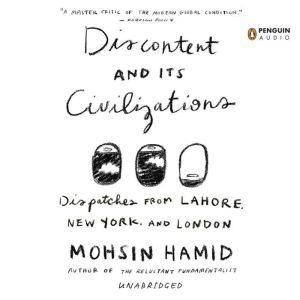

Discontent and its Civilizations
Dispatches from Lahore, New York, and London
Author: Mohsin Hamid
Narrator: Mohsin Hamid
Unabridged: 4 hr 25 min
Format: Digital Audiobook Download
Publisher: Penguin Audio
Published: 02/24/2015
Categories: Nonfiction, Political Science, Literary Criticism, Literary Collections
Synopsis
Mohsin Hamid’s brilliant, moving, and extraordinarily clever novels have not only made him an international bestseller, they have earned him a reputation as a “master critic of the modern global condition” (Foreign Policy). His stories are at once timeless and of-the-moment, and his themes are universal: love, language, ambition, power, corruption, religion, family, identity. Here he explores this terrain from a different angle in essays that deftly counterpoise the personal and the political, and are shot through with the same passion, imagination, and breathtaking shifts of perspective that gives his fiction its unmistakable electric charge.
A “water lily” who has called three countries on three continents his home—Pakistan, the birthplace to which he returned as a young father; the United States, where he spent his childhood and young adulthood; and Britain, where he married and became a citizen—Hamid writes about overlapping worlds with fluidity and penetrating insight. Whether he is discussing courtship rituals or pop culture, drones or the rhythms of daily life in an extended family compound, he transports us beyond the scarifying headlines of an anxious West and a volatile East, beyond stereotype and assumption, and helps to bring a dazzling diverse global culture within emotional and intellectual reach.

